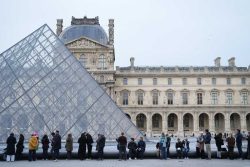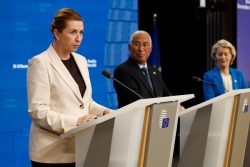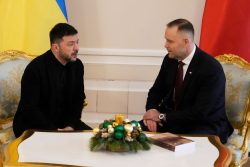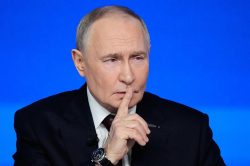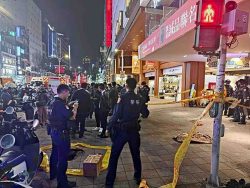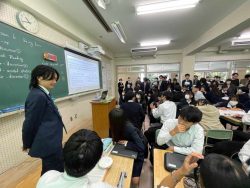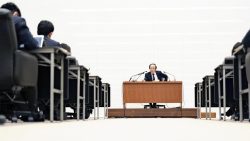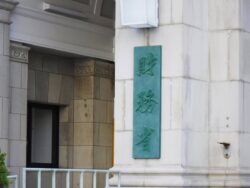King Charles III won’t Be Out and about Much over the Next Six Weeks amid Election Campaign
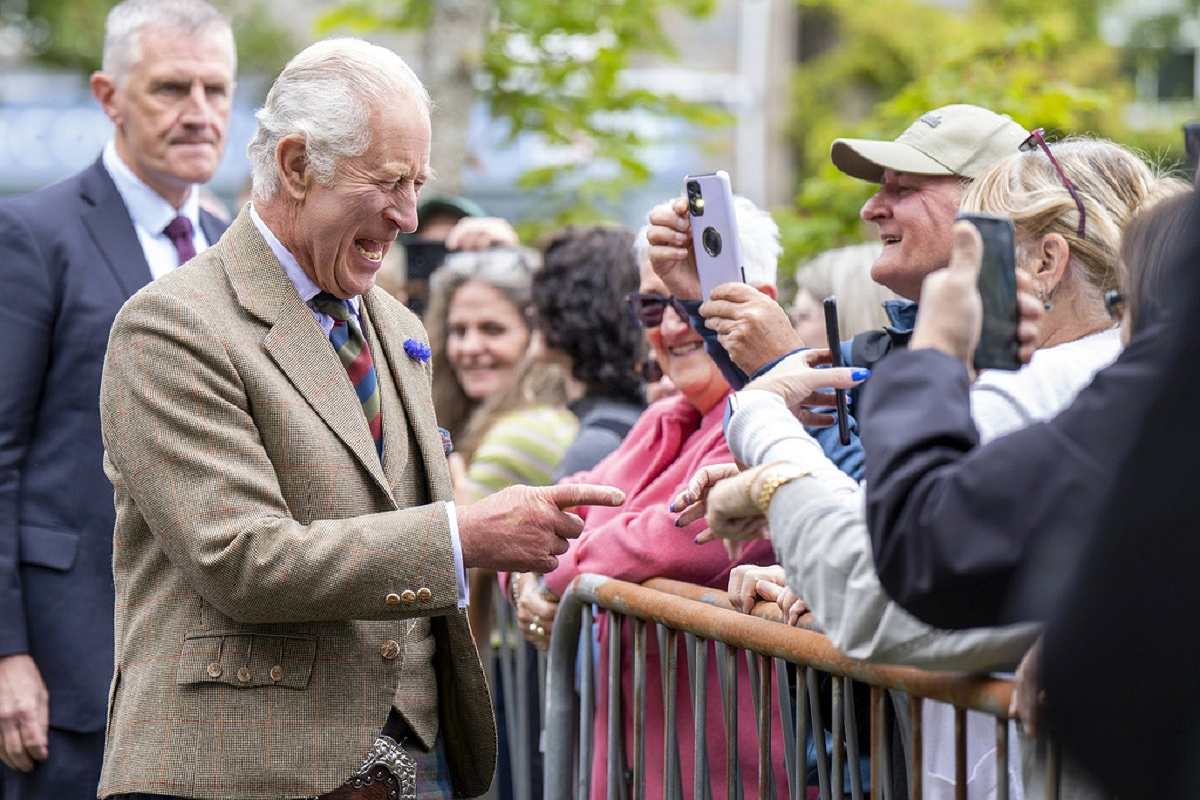
Britain’s King Charles III meets members of the public during his visit the Discovery Centre and Auld School Close to hear more about the 3.3million pound (4.1 million US dollars) energy efficient housing project in the area, in Tomintoul, Scotland, on Sept. 13, 2023.
10:50 JST, May 25, 2024
LONDON (AP) — King Charles III won’t be out and about much over the next six weeks — and it’s not because of his ongoing cancer treatments.
Shortly after U.K. Prime Minister Rishi Sunak called an early parliamentary election for July 4, Buckingham Palace said that all members of the royal family were canceling most public engagements until after the vote to avoid doing anything that might divert attention from the campaign.
That announcement is just one of the ways that Charles will seek to play his part as a unifying head of state during the election, without violating a constitutional ban on interfering in politics. While the king’s role in government is largely ceremonial, it’s bound up by traditions that embody the way royal powers were gradually transferred to Parliament over the last 800 years.
Here’s a look at the monarch’s role in the run up to the election, including a few dos and don’ts.
DID CHARLES PLAY ANY ROLE IN CALLING THE ELECTION?
The decision to call an election was entirely Sunak’s. But before he could do so, the king had to grant permission to dissolve Parliament early.
Technically, the king still has the power to refuse a dissolution request if he believes an election would be detrimental to the nation. But no prime minister in modern times has been refused permission to dissolve Parliament.
Ignoring that precedent “would expose the monarch to allegations of political interference of an undemocratic nature, even if the intention of the refusal was to preserve the good functioning of democracy,” according to the Institute for Government, an independent think tank.
The last time a British monarch unilaterally brought down a government that had a majority in the House of Commons was in November 1834, when King William IV dismissed Lord Melbourne because of concerns about radical reforms supported by some members of his administration. But Robert Peel, the king’s choice as successor, was unable to command a majority in Parliament, and Melbourne returned to office five months later.
WHAT’S NEXT FOR THE KING?
The current session of Parliament will be “prorogued,” or ended, on Friday based on an order that Charles approved during a meeting of the Privy Council on Thursday at Buckingham Palace.
The king won’t attend the formal end of the session, a ceremonial affair where the speaker of the House of Commons and other members of Parliament will troop into the House of Lords to hear a speech written by the government.
WHAT ABOUT THOSE PUBLIC APPEARANCES?
The royal family is barred by law and tradition from interfering in politics at any time, but ensuring that those rules are strictly followed is even more important during an election.
That means the royals can’t campaign for candidates, endorse policies, or even let their political preferences be known.
Buckingham Palace spelled it out soon after Sunak’s announcement, announcing that members of the royal family would postpone all engagements that “may appear to divert attention or distract from the election campaign.’’
That meant the king on Friday ditched trips to a Bentley car factory and a community center helping people who are struggling financially.
WHAT’S A MONARCH TO DO?
Well, some things are above reproach.
The king and queen still plan to attend ceremonies marking the 80th anniversary of D-Day on June 6.
Other engagements will be examined on a case-by-case basis, the palace said.
WHY DOES THIS MATTER?
One of the modern monarchy’s primary roles is to provide a unifying figurehead who is seen as above politics and can provide a sense of stability in difficult times.
This is the first general election of Charles’ reign. His mother, Queen Elizabeth II, oversaw 21 during her 70 years on the throne.
George Gross, a royal expert at King’s College London, said elections are by definition moments of turbulence in which people look to the monarchy for continuity.
“There is … a power vacuum in political terms. Power is now handed back to the British people, and they will review the offering over the next six weeks,’’ Gross said. “So what that means, though, is that the head of state has a new role. Or rather, (the) key role of stability and continuity comes to the fore. Now, (the royals) cannot be political in any way.”
"News Services" POPULAR ARTICLE
-

American Playwright Jeremy O. Harris Arrested in Japan on Alleged Drug Smuggling
-

Japan’s Nikkei Stock Average as JGB Yields, Yen Rise on Rate-Hike Bets
-

Japan’s Nikkei Stock Average Licks Wounds after Selloff Sparked by BOJ Hike Bets (UPDATE 1)
-

Japanese Bond Yields Zoom, Stocks Slide as Rate Hike Looms
-

Japan’s Nikkei Stock Average Buoyed by Stable Yen; SoftBank’s Slide Caps Gains (UPDATE 1)
JN ACCESS RANKING
-

Keidanren Chairman Yoshinobu Tsutsui Visits Kashiwazaki-Kariwa Nuclear Power Plant; Inspects New Emergency Safety System
-

Imports of Rare Earths from China Facing Delays, May Be Caused by Deterioration of Japan-China Relations
-

University of Tokyo Professor Discusses Japanese Economic Security in Interview Ahead of Forum
-

Japan Pulls out of Vietnam Nuclear Project, Complicating Hanoi’s Power Plans
-

Govt Aims to Expand NISA Program Lineup, Abolish Age Restriction


